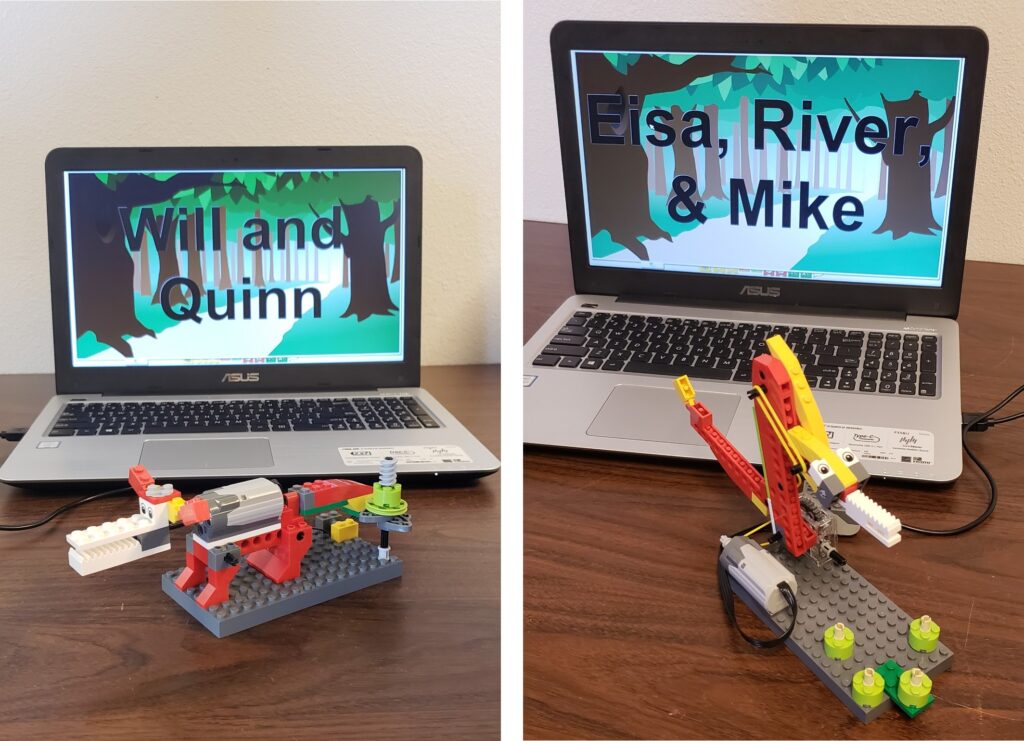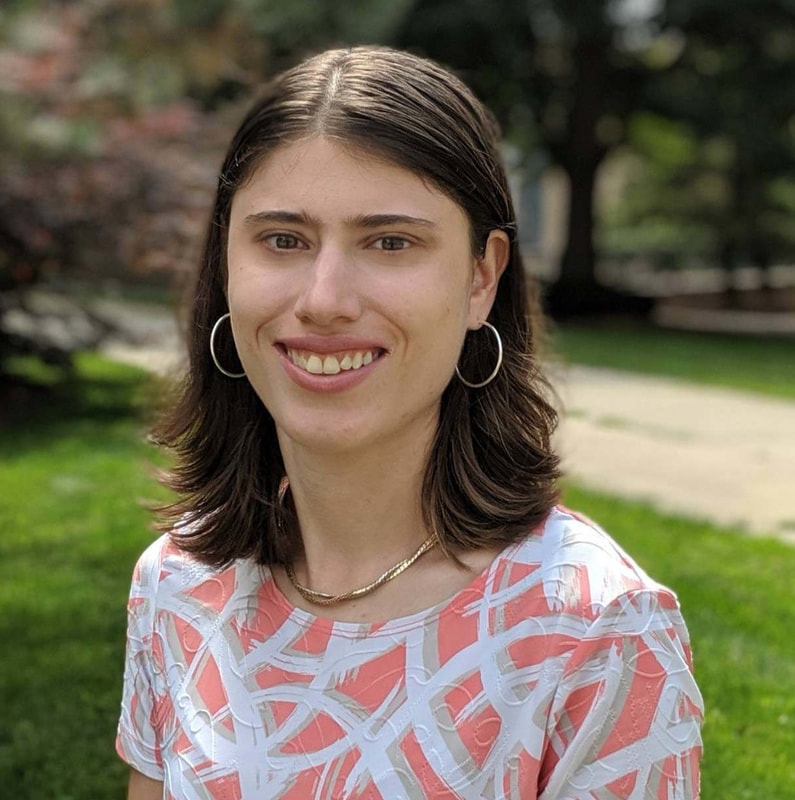The Association of Science Communicators’ growth over the years has been made possible in large part by our passionate long-time volunteers. For our third volunteer spotlight, we’re featuring Bre Kelsey, ASC’s Program Director and a member of our executive board, who has been involved with ASC since 2018. Scott Hershberger (ASC’s newsletter editor) spoke with Bre about her work communicating about foodborne illnesses, her experiences in informal STEM education, and her behind-the-scenes efforts to bring you the SCIENCE TALK conference each year.
Scott Hershberger: What do you do for your day job?
Bre Kelsey: I work at my county health department in our communicable disease program. We investigate cases of certain diseases of public health concern, like salmonella or measles. We also teach people about these diseases and how they’re spread, and we try to figure out where people were exposed. Public health certainly wasn’t where I intended to end up, but I am enjoying it. I get to use some of my science background to educate people about foodborne pathogens, and how they relate to food safety at restaurants and cooking at home.
My main job right now is to respond to foodborne illness complaints. I find out more about people’s symptoms and share with them about the kind of pathogen that I think made them sick based on their symptoms, timeline, and duration.
SH: In those conversations, what’s something that you’ve learned about science communication that felt a bit counterintuitive to you at the time?
BK: In science communication, you always hear the 101-level information that the deficit model isn’t what we want to be using. We always hear about trying to avoid jargon and trying to connect with our audience and that sort of thing. Something that I’ve never really heard talked about explicitly is your audience’s level of interest in the conversation.
When I first started, I would try and share about the pathogen that I thought they might have had, and some people really just weren’t interested. I learned over time that it’s helpful if you can find the people who are interested in engaging by just listening to who’s asking questions. I practiced a lot with those people, and then I found it easier to communicate science to the people that aren’t as interested, to at least convey the information that I feel like they really need to know.
SH: You had some interesting science communication experiences during your master’s program in molecular biosciences, too. Could you tell me about those?
BK: The cool thing about my master’s program is that instead of doing a written thesis, our culmination experience was doing a full-time two-month internship and then writing a report about it. And because I was discovering science communication, I did my internship at two different places.
One of them was with the US Fish and Wildlife Service in Leavenworth, Washington, where I got to help behind the scenes for a giant annual festival called the Wenatchee River Salmon Festival. This festival was an early pioneer in public environmental education events in Washington State. Teaching kids about the local ecosystem and looking for water bugs while standing in a river all day was definitely a highlight of that. In fact, I met my internship mentor for that internship at my first SCIENCE TALK in 2018 during a morning icebreaker.
I also interned under the lead science educator at my college town’s very small, under-resourced rural science center. We did a lot of informal STEM programs. I was also pretty involved in the backend running of the science center because the staff was so small. One of the more memorable things for me was our robotics summer camps for fourth through sixth graders, which taught me a lot about patience and how to teach STEM concepts that I hardly understood myself to children. Those two internships solidified for me that I love coordinating and planning for events. That’s why I wanted to get involved with Science Talk.

SH: You’ve been volunteering with Science Talk (now ASC) since 2018. What do you do as program director?
BK: My main gig is the annual SCIENCE TALK conference. I’m in charge of the program and who we bring in to speak. We use a mostly unconference model, where around 95% of our conference program usually comes from submissions from science communicators out in the community. My role is to coordinate collecting all those submissions, coordinate community voting, select the final program, piece together the agenda, and then communicate with all our speakers.
I also help coordinate other events. We did a recent panel with NSF Advancing Informal STEM Learning grantees and program managers that I helped coordinate. I also help oversee our courses program, which is run by our amazing course coordinator, Amanda Pluntze.
SH: What do you most enjoy about volunteering with ASC?
BK: Doing my undergrad, I really enjoyed learning about science, but I knew early on that I didn’t want to do research or stay in academia. I’ve always had a ton of different interests and I’ve never really found that one thing that I feel like I’m super good at or super passionate about—until I found event planning and logistics work. What I love about ASC is that I’m getting to do that. It’s fulfilling a part of my passion that my day job doesn’t. And it’s connecting back to science, to a cause that I feel really strongly about.
SH: Why should people get involved in ASC?
BK: So much of science communication still happens in silos, which I know the field is now talking about a lot. I think the silos are partly a function of the fact that there are so many widely varied types of careers and side gigs and projects in scicomm. There are so many people who communicate science who might not think of themselves in that way. I have colleagues who do what I do, and they certainly do not think of themselves as science communicators, even though that’s what they do all day.
A lot of awesome organizations are creating communities for specific career fields in scicomm. With ASC, we’re trying to bring all these diverse professions together and help create connections and collaborations across these very different career paths—ultimately with the goal of breaking down those silos and creating a community for literally anybody who communicates science in any sense of the term.



Leave a Reply